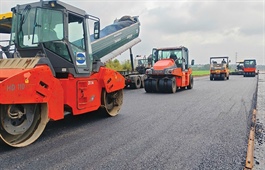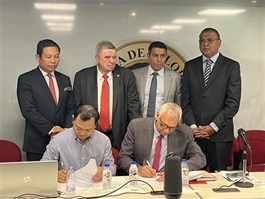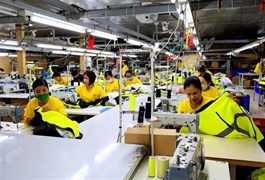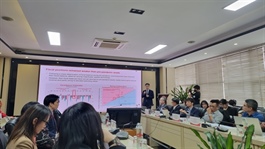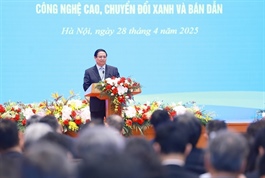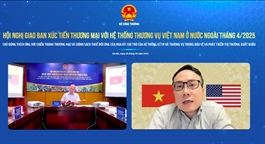South Korea and Vietnam share deep development connection
South Korea and Vietnam share deep development connection
Vietnam’s political reforms have developed gradually, maintaining a balance between stability and openness.
Over the decades, the country has pursued economic growth within a framework of political stability while refining its legal system and institutions. As a result of these reforms, by 2023, Vietnam had established diplomatic relations with 189 countries and concluded over 90 bilateral trade agreements and approximately 60 investment promotion and protection agreements. This political flexibility and pragmatism provides foreign businesses with stability and predictability. In recent years, Vietnam has demonstrated a clear policy commitment to international agreement compliance and business environment improvement, signifying its growth as a responsible member of the global economic order.
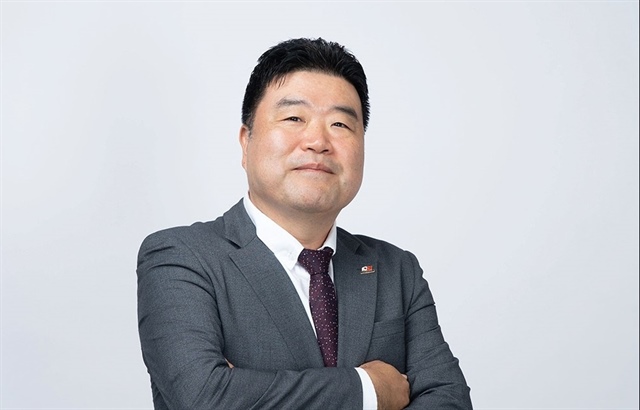
Kim Nyoun-Ho, chairman, Korean Chamber of Commerce and Industry |
Vietnam’s economic growth has been powered by open trade policies, an abundant young workforce, and proactive government policies to engage foreign direct investment which has flourished since the 1990s, with industrial foundations strengthened particularly around Vietnam’s World Trade Organization accession, when South Korean, American, European, and Japanese companies established manufacturing operations.
Vietnam has participated in global supply chains through various free trade agreements, rapidly enhancing the competitiveness of its key export industries, including coffee, rice, electronics, textiles, footwear, and furniture. Infrastructure development in transportation, ports, and energy has also driven growth.
The digital transformation of traditional services has been particularly impressive, with conventional motorcycle taxis evolving into advanced transportation services, delivering enhanced safety, convenience, speed, and reasonable pricing that support broader economic activity.
Recently, foreign investment has increased in franchise industries, digital economy, AI, semiconductors, and green industries, with the Vietnamese government actively supporting these sectors. The combination of consistent government policies, private sector dynamism, and improvements in education has established Vietnam as ASEAN’s most dynamic economy.
ICT development has also significantly contributed to Vietnam’s socioeconomic advancement. As of 2024, Vietnam’s ICT industry generated approximately $166 billion in revenue, accounting for 11 per cent of GDP. The proliferation of smartphones and internet infrastructure has reduced the information gap between urban and rural areas, forming the foundation for growth in e-commerce, digital finance, online education, and other sectors.
Electric vehicles and e-scooters are spreading more rapidly than in other countries, while advanced technologies like smart manufacturing, automation, the Internet of Things, and AI are being applied in industrial settings, greatly improving productivity and quality. The government-led digital transformation strategy is showing tangible results, and the startup ecosystem and venture investment environment are growing rapidly. Technology adoption is also expanding in healthcare, agriculture, and energy sectors, improving living standards. Particularly, green energy and carbon reduction technologies will be key drivers of Vietnam’s future growth.
South Korea and Vietnam already share profound cultural connections that can be further strengthened through various initiatives. Currently, approximately 10,900 students are learning the South Korean language in 79 secondary schools across Vietnam, with TOPIK (Test of Proficiency in Korean) exam registrations growing dramatically to reach around 60,000 annually. Beyond historical and economic cooperation, broadening cultural understanding is essential. The Korean Wave, through K-dramas and K-pop, already has significant influence in Vietnam, providing a foundation for expanded cultural exchange. Effective approaches include expanding youth exchange programmes, collaborative projects between artists and creators, and experiential events centred on food, fashion, and traditional culture.
Additionally, academic and research cooperation between universities, youth camps, and expanded language education support will deepen understanding among future generations. Sister city relationships and local-level cultural exchanges are also meaningful approaches.
Culture is the key to mutual understanding, and through respecting and learning about each other’s cultures, the two countries can build a deeper partnership. Through such exchanges and development, Vietnam’s culture is also advancing, and just as Vietnamese cuisine like pho has gained global recognition, Vietnamese culture is poised to claim its place on the world stage.
Globally, Vietnam has established itself as a strategic central nation in ASEAN and is expected to become a vital link in global supply chains within the next decade. New airports, ports, highways, and railways will provide the foundation for this role. Vietnam is preparing to transition from a manufacturing powerhouse to playing a major role in global value chains through digital and eco-friendly industries.
Alongside economic growth, Vietnam will strengthen its global leadership by actively engaging in shared international values such as climate change response, sustainable development, and environmental, social, and governance management.
Vietnam can create synergies with South Korea through strategic cooperation in joint market development, tech collaboration, and talent exchanges. I am confident that within the next decade, Vietnam will emerge as both a bridge connecting Asia with the world and a centre for innovation and sustainable growth.
- 09:00 03/05/2025





